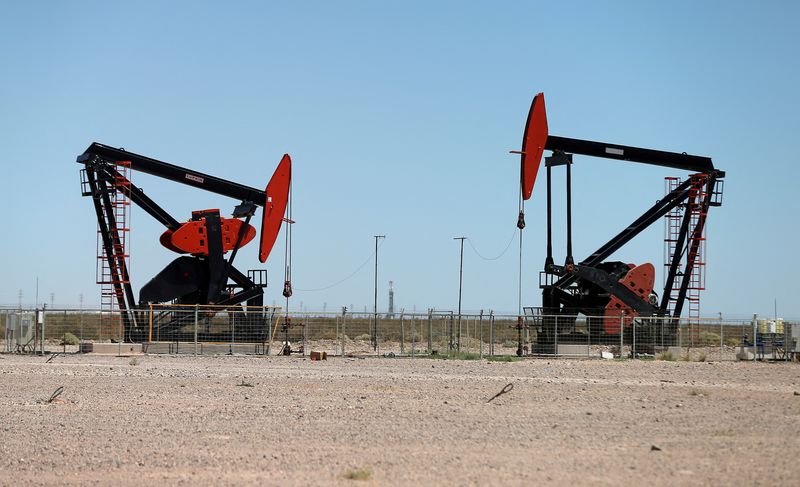Oil on track for weekly climb on potential Mideast supply disruption
By Georgina McCartney
HOUSTON (Reuters) -Oil prices edged down marginally on Friday but remained on track for a second weekly gain as investors weighed the potential for supply disruption if Israel attacks Iranian oil sites, against the fallout from Hurricane Milton.
Brent crude oil futures were down 20 cents, or 0.25%, at $79.20 a barrel by 11:13 a.m. EDT. U.S. West Texas Intermediate crude futures slipped 13 cents, 0.17%, to $75.72 per barrel.
For the week, both benchmarks were headed for gains.
"Markets can feel the tension, as Israel contemplates the size and form for their response to Iran's massive missile attack. If Israel destroys Iran's oil & gas infrastructure, prices will rise," said chief economist at Matador Economics, Tim Snyder, in a note on Friday.
In the U.S., Hurricane Milton plowed into the Atlantic Ocean on Thursday after cutting a destructive path across Florida, killing at least 10 people and leaving millions without power. The destruction could dampen fuel consumption.
Florida is the third-largest gasoline consumer in the U.S., but there are no refineries in the state, making it dependent on waterborne imports.
And reservations over high crude inventories and a possibly more gradual monetary easing by the U.S. Federal Reserve have also helped put the recent rally in oil prices on hold, said Yeap Jun Rong, market strategist at IG.
Crude benchmarks spiked this month after Iran launched more than 180 missiles against Israel on Oct. 1, raising the prospect of retaliation against Iranian oil facilities. Israel has yet to respond, and crude benchmarks have eased and remained relatively flat through the week.
Israeli Defence Minister Yoav Gallant has said that any strike against Iran would be "lethal, precise and surprising."
"We need to wait and see how Israel responds, but I think until that point the oil market will keep a risk premium," said UBS analyst, Giovanni Staunovo.
Iran is backing several groups fighting Israel, including Hezbollah in Lebanon, Hamas in Gaza and the Houthis in Yemen.
Lebanon's army said two people were killed and three others injured after Israeli forces targeted one of its military posts in southern Lebanon's Kafra on Friday.
Gulf states, meanwhile, are lobbying Washington to stop Israel from attacking Iran's oil sites out of concern their own oil facilities could come under fire from Tehran's allies if the conflict escalates, three Gulf sources told Reuters.
On the supply side, Libya's national oil corporation (NOC) said on Friday it had restored oil production to levels before the country's central bank crisis as it reached 1.25 million barrels.
Source: Investing.com
